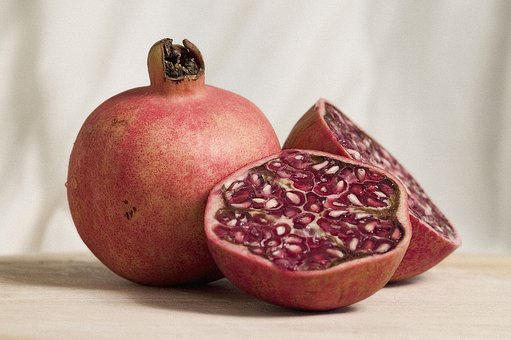Pomegranate Phytoconstituents Blunt the Inflammatory Cascade in a Chemically Induced Rodent Model of Hepatocellular Carcinogenesis
© Authored by PubMed
Topics:
Pomegranate
© HealthyMuslim. See Terms and Conditions
Copy Link
Email
Print

Bishayee A, Thoppil RJ, Darvesh AS, Ohanyan V, Meszaros JG, Bhatia D. Pomegranate phytoconstituents blunt the inflammatory cascade in a chemically induced rodent model of hepatocellular carcinogenesis. 1. J Nutr Biochem. 2012 Jul 25. [Epub ahead of print]
Liver cancer, predominantly hepatocellular carcinoma (HCC), represents a complex and fatal malignancy driven primarily by oxidative stress and inflammation. Due to dismal prognosis and limited therapeutic intervention, chemoprevention has emerged as a viable approach to reduce the morbidity and mortality of HCC. Pomegranate fruit is a rich source of phytochemicals endowed with potent antioxidant and anti-inflammatory properties. We previously reported that pomegranate phytochemicals inhibit diethylnitrosamine (DENA)-initiated hepatocarcinogenesis in rats though nuclear factor E2-related factor 2 (Nrf2)-mediated antioxidant mechanisms. Since Nrf2 also acts as a key mediator of the nuclear factor-kappaB (NF-?B)-regulated inflammatory pathway, our present study investigated the anti-inflammatory mechanisms of a pomegranate emulsion (PE) during DENA-induced rat hepatocarcinogenesis. Rats were administered with PE (1 or 10 g/kg) 4 weeks before and 18 weeks following DENA initiation. There was a significant increase in hepatic expressions of inducible nitric oxide synthase, 3-nitrotyrosine, heat shock protein 70 and 90, cyclooxygenase-2 and NF-?B in DENA-exposed rat livers. PE dose-dependently suppressed all aforementioned elevated inflammatory markers. A conspicuous finding of this study involves lack of cardiotoxicity of PE as assessed by monitoring cardiac function using noninvasive echocardiography. Our results provide substantial evidence that suppression of the inflammatory cascade through modulation of NF-?B signaling pathway may represent a novel mechanism of liver tumor inhibitory effects of PE against experimental hepatocarcinogenesis. Data presented here coupled with those of our earlier study underline the importance of simultaneously targeting two interconnected molecular circuits, namely, Nrf2-mediated redox signaling and NF-?B-regulated inflammatory pathway, by pomegranate phytoconstituents to achieve chemoprevention of HCC.
Link to this article: Show: HTML Link • Full Link • Short Link
Share or Bookmark this page: You will need to have an account with the selected service in order to post links or bookmark this page.





|
Related Articles:
- Current Nutraceuticals in the Management of Osteoarthritis: A Review
- Activity of Spray-Dried Microparticles Containing Pomegranate Peel Extract Against Candida Albicans
- Pomegranate Juice Reverses Heart Disease (Clogged Arteries)
- Anticancer Activities of Pomegranate Extracts
- Pomegranate Juice 'Could Slow the Spread of Cancer'
- Pomegranate Juice Reduces Inflammation, Tissue Damage and Infections, Study Suggests
- Pomegranates Associated With Preventing Breast Cancer
- Pomegranate Protects Prostate Health
- Seven Anti-Ageing Foods
- Ibn al-Qayyim: Pomegranate Strengthens Stomach, Good for Throat, Chest and Lungs and Coughs Amongst Other Benefits
You must be registered and logged in to comment.
Most Popular
Latest Articles
Popular Subjects
Health, fitness and longevity
Based upon the principles of health
in the Qur'an and Prophetic Traditions.
HealthyMuslim.Com
There are two bounties in which
most people lose out: good health
and free time. Al-Bukhari.
The information on this site is provided for educational purposes only. It is not intended as a substitute for professional advice of any kind.























